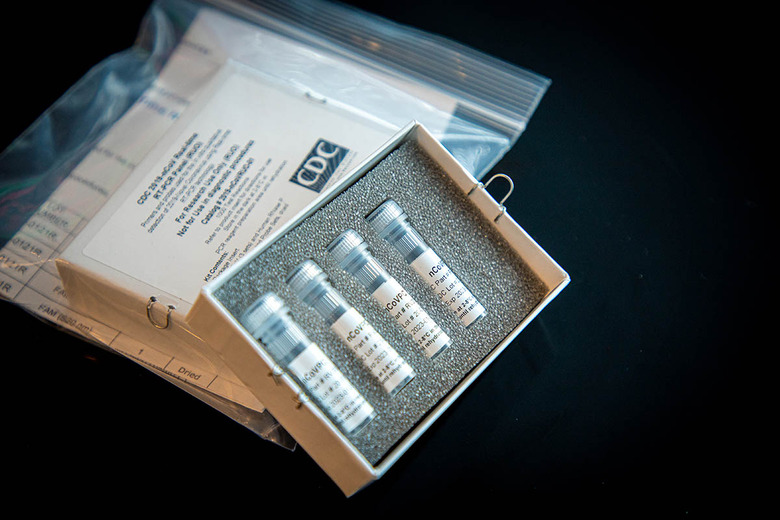Coronavirus Tests: Understanding PCR, Antigen And Antibody
Countries around the world are struggling to test their populations for the novel coronavirus SARS-CoV-2, the cause of the infectious disease called COVID-19. There are multiple testing options available, though the usefulness of each varies based on the time of testing and its accuracy level. Antibody tests have received ample attention in recent days, but what are they and how do they differ from antigen and PCR testing?
There are three different testing options for the novel coronavirus: antibody testing, antigen testing, and PCR. TL;DR: PCR and antigen testing determine whether you're currently infected with the coronavirus, one more effectively than the other, while an antibody test can determine if you were infected more than four weeks ago, but have since recovered from the virus.
Serology (antibody) tests
Many people around the world suspect that they had contracted the novel coronavirus at some point in the last few months and that they have since recovered, but these suspicions were never confirmed due to a lack of tests in most countries. By testing someone's blood for antibodies that are produced by one's immune system as a result of an infection, officials can determine whether someone had been exposed to the novel coronavirus at some point even if they're no longer infected.
Following news that a company had falsely claimed that its antibody test had received FDA approval, the agency actually did issue its first Emergency Use Authorization for a coronavirus serology (antibody) test from Cellex Inc. According to a letter published by the FDA, this test is able to detect antibodies related to the novel coronavirus using blood, plasma, and serum samples collected from individuals who may have been exposed to the virus.
PCR tests
For people in the US who are believed to be actively infected with the novel coronavirus, the CDC has developed a test called the "2019-nCoV Real-Time Reverse Transcriptase (RT)-PCR Diagnostic Panel." The PCR test can detect a current COVID-19 infection using specimens collected from the patient's upper and lower respiratory systems, the agency explains on its website. This test is performed using a nasal swab.
The FDA granted the CDC an Emergency Use Authorization for its diagnostic panel on February 4, a day after the CDC submitted the request for an EUA. The CDC is also working on developing its own serology (antibody) test related to the novel coronavirus, but this process requires a number of blood samples from confirmed COVID-19 patients.
Antigen testing
Joining the PCR test is an antigen test, which is also able to determine if the patient has a current novel coronavirus infection, but it is the less favorable of the two testing options. Unlike a PCR test, which looks for genetic material related to the virus, an antigen test looks for virus protein, which the body detects as a foreign intrusion that triggers the immune system into action.
Wrap-up
Demand for these testing kits is currently substantially higher than the actual number of available kits, forcing a number of countries, including the US and UK, to limit which people qualify for a test. Efforts to increase testing numbers will better shed light on the coronavirus's spread and mortality rate, but until then, experts are left to make estimations and projections using the data that is currently available from China, Iceland, the Diamond Princess cruise ship, and more.

